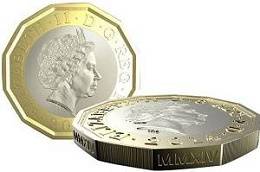WITHDRAWING MONEY: The law sees a limited company as a separate entity. Thus, you cannot withdraw money from a limited company – like personal bank accounts.
There are four different ways to achieve a withdrawal of funds. You can either:
- Pay a director’s salary to yourself.
- Issue dividend payments from any available company profits.
- Take out a directors’ loan.
- Claim expenses for business-related items paid for with your own money.
In a legal sense, all the finances belong to the company. That means directors and shareholders must follow the legal procedures for taking money out of the business.
Note: You must transfer all company finances through the correct and legitimate channels. Always set down accurate transfers in the company accounting records.
Paying Salary, Benefits, and Expenses
The company can pay out a salary, benefits, or expenses. But, you need to register the company as an employer before withdrawing it.
Following that, the company must then deduct Income Tax and National Insurance contributions. They must get deducted from any salary payments. The tax and NI deductions must then get paid to HM Revenue and Customs (HMRC).
What if you (or an employee) make personal use of something that belongs to the business? If this is the case, you must report it as expenses and benefits for employers and then pay any due taxation on it.
Share Dividend Payment Rules
A share dividend is a payment made by a limited company to its shareholders – assuming it makes a profit. But, dividends do not get counted as business costs when working out Corporation Tax.
 Note: A company must not pay out share dividends if they are higher than those available from profits in either the current or previous financial years.
Note: A company must not pay out share dividends if they are higher than those available from profits in either the current or previous financial years.
As a general rule, limited company dividends should get paid out to ‘all shareholders’. The rules for paying a shareholder dividend means:
- Holding a meeting of the directors to ‘declare’ the dividend.
- Keeping minutes of the directors’ meeting (even if there is only one company director).
Share Dividend Paperwork
You need to write up a dividend voucher for each dividend payment made by the company. The payment voucher is part of share dividend paperwork and must show:
- The date of the transaction.
- The name of the limited company.
- The names of all shareholders getting paid a dividend and the amount of each share dividend.
Each dividend recipient must get a copy of the voucher. The company must also keep a copy in the accounting records.
Company Tax on Dividends
Limited companies do not need to pay tax on shareholder dividend payments. But, the shareholders may need to pay Income Tax on dividends if they are over £2,000.
Directors’ Loans
If you take money out of a limited company it is not always salary or a dividend. Taking out more money than got put in would be ‘director’s loans‘ for HMRC purposes.
When you are running a limited company you must keep accurate records of all financial payments. The handling of directors loan may also have extra liabilities for taxation.

